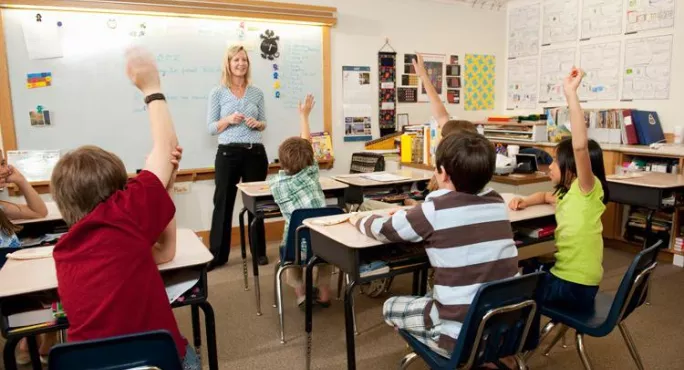Spring Statement: the 5 key concerns
Share
Spring Statement: the 5 key concerns
Chancellor Philip Hammond today set out his Spring Statement, which included more money for police and housing but not for schools.
Here are five key concerns raised about what his statement did – and did not – have to say about education.
1. Money, money, money
This was the big concern.
The Spring Statement is not the same as the Budget, and ahead of time the Treasury made it clear that it was not a “fiscal event”, and so was not expected to contain major spending announcements.
Spring Statement: Education unions set out six tests for chancellor
Opinion: Can't ministers just be honest about education cuts?
Quick read: School funding is a 'national emergency', MPs say
That did not stop a coalition of unions setting out six “tests” for the chancellor, which revolved around funding pressures in the education system.
Despite the Treasury's earlier indications, the Spring Statement did include some new spending, most notably £100 million to combat knife crime (see below) and help for house building – but nothing for school budgets.
Predictably, the unions were unimpressed.
Chris Keates, general secretary of the NASUWT, said the statement “provides nothing to meet the pressing needs of schools today”, and Kevin Courtney, joint general secretary of the NEU, said the chancellor had “failed” to take the opportunity to end schools’ uncertainty about budget planning.
2. Period poverty
There was a broad welcome for Mr Hammond's confirmation that the government will “fund the provision of free sanitary products in secondary schools and colleges in England from the next school year”.
However, there were concerns that this would not eliminate period poverty for all girls.
Paul Whiteman, general secretary of the NAHT headteachers’ union, said: “It would be good to see free sanitary products further extended to Year 6, as many girls start their periods before secondary school.
"The government deserves a lot of credit for recognising this issue and for solving it as quickly as possible.”
3. Knife crime
In recent weeks, some police figures have pointed the blame for the rise in knife crime at schools, singling out exclusions.
Today it was police, rather than schools, that got money to deal with the issue.
The chancellor announced £100 million for police that would be ring-fenced to pay for additional overtime targeted specifically on knife crime, and for new Violent Crime Reduction Units to deliver a wider cross-agency response.
Vicky Foxcroft, Labour MP for Lewisham Deptford, tweeted that the figure was welcome but “a drop in the ocean”. She added: “If the Gov is serious about treating violence as a public health issue, it also needs to look closely at funding for education, housing, youth services and healthcare.”
4. Early years
On Monday, nursery heads marched on Downing Street to warn that their schools would close without sustainable funding.
Early years was not mentioned in today’s Spring Statement.
Neil Leitch, chief executive of the Early Years Alliance, said: "It beggars belief that the government is walking a sector as vital as the early years to this cliff.”
He added: “Many providers will be incredibly disappointed that the chancellor has yet again missed an opportunity to tackle the early years funding crisis."
5. Philip Hammond’s babysitting duties
Labour MP Jess Phillips told the chancellor that he will have to babysit her sons following school cuts.
The Birmingham Yardley MP said her sons' school would be closing on Friday afternoons, so she would be bringing them to Parliament.
She said: "I hope he is looking forward to seeing my children because I am bringing them to be looked after by him every Friday at 1pm."
Mr Hammond replied "I shall look forward to it", before blaming Labour and Brexit for a lack of investment in schools.




